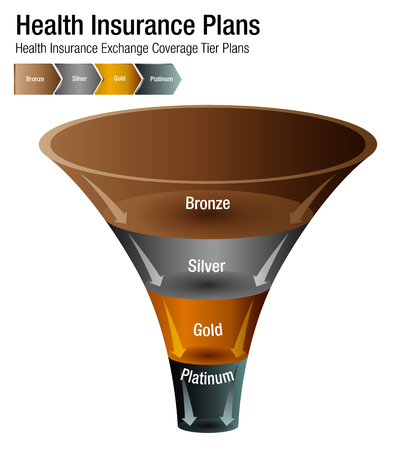Understanding the Critical Illness Waiting Period
When it comes to financial protection, many UK families turn to critical illness cover as a safety net against unexpected health setbacks. A crucial aspect of these insurance policies is the “waiting period”—a specific timeframe that must pass after diagnosis before any benefits are paid out. This waiting period, typically ranging from 14 to 30 days depending on the insurer and policy, serves as a safeguard for insurance providers but can create significant uncertainty for policyholders. In the UK, this interval applies uniformly across most mainstream critical illness insurance products and is outlined clearly in policy documentation. For families navigating a new diagnosis, understanding this waiting period is essential: it directly affects when financial support becomes available and can be a source of stress if not anticipated. Recognising how these terms apply to your specific plan empowers you to make informed decisions and prepare alternative strategies for bridging any temporary financial gaps during this challenging time.
2. Assessing Your Current Financial Situation
Understanding your current financial position is a crucial first step in reducing stress during the waiting period of a critical illness claim. By evaluating your income, expenses, savings, and support options, you can identify potential gaps and create an actionable plan.
Review Your Household Income
Begin by listing all sources of household income. This may include salaries, benefits, rental income, pensions, or any other regular payments. Be realistic and focus on what is guaranteed during the waiting period.
| Income Source | Monthly Amount (£) |
|---|---|
| Salaries/Wages | |
| State Benefits (e.g., Universal Credit, ESA) | |
| Pensions/Annuities | |
| Rental Income | |
| Other (e.g., Child Benefit) | |
| Total Monthly Income |
Calculate Outgoing Expenses
Next, itemise all essential monthly outgoings such as mortgage or rent payments, utilities, council tax, food shopping, insurance premiums, and transportation costs. Include any debt repayments or ongoing medical expenses related to the illness.
| Expense Category | Monthly Cost (£) |
|---|---|
| Mortgage/Rent | |
| Utilities (Gas/Electric/Water) | |
| Council Tax | |
| Groceries & Essentials | |
| Insurance Premiums | |
| Transport/Travel Costs | |
| Debt Repayments/Credit Cards | |
| Medical Expenses (if applicable) | |
| Total Monthly Expenses |
Evaluate Available Savings and Support Schemes
Check your accessible savings and investments that could be used if needed. Also review any government support schemes for which you may be eligible during illness—such as Statutory Sick Pay (SSP), Employment and Support Allowance (ESA), or Personal Independence Payment (PIP). These can provide some relief while awaiting insurance payouts.
Savings & Support Overview:
| Savings/Support Type | Available Amount (£) | Status/Notes |
|---|---|---|
| Savings Account(s) | ||
| ISAs/Investments (liquid) | ||
| Government Benefits Applied For? | N/A | |
| Other Support (Charity Grants etc.) | ||
| Total Accessible Funds/Support |
Identify Potential Shortfalls and Take Action Early
The difference between your total monthly income and expenses will reveal if there’s a gap that needs attention. If expenses exceed income—even after using savings or government help—consider contacting creditors to discuss payment holidays or reduced payments. Local authorities may also offer council tax reductions or hardship funds.
By proactively assessing these factors, UK families can better understand their financial resilience during critical illness waiting periods and take practical steps to minimise stress.

3. Exploring UK-Specific Financial Assistance and Benefits
During the waiting period for critical illness claims, understanding and accessing available financial support can greatly reduce stress for UK families. The UK offers a range of government benefits, charitable resources, and local council schemes designed to support those facing serious illness.
Government Benefits
The most relevant state benefits include Statutory Sick Pay (SSP), Employment and Support Allowance (ESA), and Universal Credit. SSP is paid by employers for up to 28 weeks if you are too ill to work. If your SSP entitlement ends or you do not qualify, ESA provides further income support based on your ability to work due to illness. Universal Credit can help with living costs for those on low incomes or out of work because of health issues. For detailed eligibility criteria and application guidance, visit the official government portal at gov.uk/benefits.
Additional Health-Related Support
If your illness results in a disability or long-term health condition, consider applying for Personal Independence Payment (PIP). PIP helps with extra costs associated with daily living or mobility needs. More information is available at gov.uk/pip.
Charitable Organisations
Numerous UK charities offer grants, advice, and practical help for families affected by critical illnesses. Organisations such as Macmillan Cancer Support, Citizens Advice, and Turn2us provide tailored financial guidance, emergency funds, and advocacy services. Many also maintain searchable databases of grants specific to diagnosis, occupation, or family situation.
Local Council Support Schemes
Your local authority may offer discretionary support such as hardship payments, council tax reductions, or assistance with housing costs during periods of illness. Each council sets its own criteria—check your eligibility and apply through your local council’s website via the directory at gov.uk/find-local-council.
Summary Table: Key Resources
- Statutory Sick Pay (SSP): Initial income replacement from employer (Details)
- Employment and Support Allowance (ESA): State benefit after SSP ends (Details)
- Personal Independence Payment (PIP): For extra costs due to disability/illness (Details)
- Council Support: Discretionary help with bills/housing (Find Your Council)
By proactively exploring these UK-specific benefits and resources, families can better manage financial pressures during the uncertainty of a critical illness waiting period.
4. Communicating with Service Providers and Creditors
During the waiting period for critical illness insurance payouts, maintaining open and proactive communication with banks, utility companies, and creditors can significantly reduce financial pressure. Many UK service providers offer temporary arrangements or payment holidays for families facing medical emergencies, but these options usually require you to take the first step in reaching out.
Why Early Communication Matters
Contacting your service providers before missing payments demonstrates responsibility and increases the likelihood of receiving flexible support. UK financial institutions are regulated by the Financial Conduct Authority (FCA), which encourages them to treat customers in vulnerable situations fairly. Utility companies also have hardship teams dedicated to assisting those experiencing temporary financial difficulty due to illness.
Common Temporary Arrangements Offered
| Provider Type | Possible Support Options | How to Request |
|---|---|---|
| Banks & Mortgage Lenders | Payment holiday, reduced payments, interest-only periods | Contact customer service; provide medical documentation if required |
| Utility Companies (gas, electric, water) | Short-term payment plans, pause on disconnections, Priority Services Register | Call hardship team; explain circumstances and provide evidence if possible |
| Council Tax Offices | Council tax reduction or deferral scheme | Apply online or phone local council with proof of illness and income change |
| Credit Card/Loan Providers | Interest freeze, reduced minimum payments, payment holiday | Email or call provider; request a review based on health situation |
Tips for Effective Communication:
- Prepare documentation: Have medical letters or hospital appointment confirmations ready as evidence.
- Be honest but concise: Clearly state your current situation and expected timescales for recovery or insurance payout.
- Keep records: Log all conversations and correspondence for future reference.
- Ask about specific schemes: Inquire directly about ‘payment holidays’, ‘hardship schemes’, or any support for critical illness cases.
- Follow up in writing: Confirm all agreements via email or letter to ensure clarity and accountability.
Taking these steps can help safeguard your credit rating, avoid unnecessary fees, and provide vital breathing space during a challenging period. Proactive engagement is often met with understanding—don’t hesitate to ask for help tailored to your family’s needs.
5. Utilising Community and NHS Support Structures
Discovering Free or Subsidised Services
During the critical illness waiting period, many UK families face additional financial pressures. However, it is essential to recognise that a wealth of support services exists within local communities and through the NHS. These services are often free or heavily subsidised, helping to reduce both daily living expenses and care-related costs.
NHS Trusts: What’s Available?
Local NHS Trusts can offer more than just medical treatment. Many trusts provide access to patient transport services, home care support, and equipment loans for those temporarily unable to work or requiring mobility aids. It is advisable to contact your local Patient Advice and Liaison Service (PALS) for guidance on what is available in your area, as provisions can vary between regions.
Charities: Bridging the Gaps
A range of UK charities specialise in supporting families affected by critical illness. Organisations such as Macmillan Cancer Support, Marie Curie, and Maggie’s Centres offer grants to cover household bills, travel expenses, and even one-off essential purchases. Many charities also run advice lines to help navigate the benefits system and claim any entitlements you may have missed.
Community Groups: Practical Day-to-Day Help
Local community groups and faith-based organisations frequently step in where formal services leave off. These groups may provide hot meals, food parcels, childcare support, or help with shopping and errands. Connecting with these groups can significantly lower everyday costs and relieve some of the stress associated with managing a household during illness.
Cost Analysis: Maximising Local Resources
By utilising free NHS services, charity grants, and community group offerings, families can offset several hundred pounds per month in potential outgoings—money that would otherwise be spent on care, transportation, or basic living needs. This proactive approach not only preserves savings but also helps maintain family wellbeing during a challenging period.
6. Practical Budgeting and Cost-Cutting Tips
Simple Steps to Make Your Money Go Further
During the waiting period for critical illness payouts, every pound counts. Adopting some straightforward budgeting strategies can help ease financial stress and keep your household running smoothly, even when income is uncertain.
Meal Planning: Save on Food Costs
Food shopping is often one of the largest weekly expenses for UK families. By planning meals in advance, making shopping lists, and sticking to them, you can avoid impulse buys and reduce waste. Try batch cooking and freezing meals to take advantage of supermarket offers—many stores run “yellow sticker” discounts on items close to their sell-by date, which can be a real bargain if used promptly.
Make the Most of Discounts and Loyalty Schemes
Don’t overlook loyalty cards at major British supermarkets like Tesco Clubcard or Sainsbury’s Nectar Card. These points add up to money off future shops. Also, check out community initiatives such as food banks, local pantries, or “Too Good To Go” apps that let you buy unsold food at reduced prices.
Energy-Saving Measures for Lower Bills
With UK energy prices on the rise, small changes can lead to big savings. Draught-proofing windows and doors, using LED bulbs, and turning appliances off standby all help cut electricity use. Consider washing clothes at lower temperatures and only running full loads. If eligible, check government schemes like the Warm Home Discount or free energy advice from Citizens Advice Bureau.
Additional Budget Hacks
- Review subscriptions—cancel any services you don’t need during this period
- Use comparison websites to find cheaper deals on utilities, insurance, or broadband
- Travel off-peak where possible for reduced public transport fares
By focusing on these practical steps tailored to everyday UK life, you can create breathing space in your budget while waiting for critical illness support. Every small saving contributes to greater peace of mind during challenging times.

